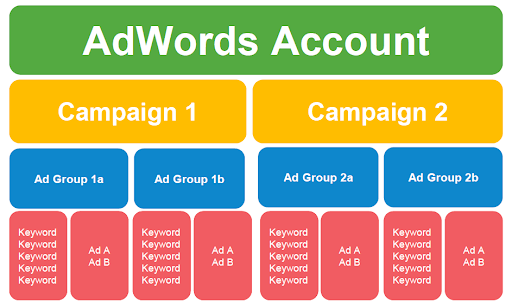Search engine marketing, or SEM, is a powerful digital marketing strategy that uses paid advertising to reach potential customers at the precise moment they are ready to make a purchase. This makes it one of the most effective advertising methods available and is why so many businesses choose to engage in SEM campaigns. Google Adwords is the most commonly used PPC platform that allows anyone to reach potential clients and customers on the worlds most used search engine.
PPC, or pay-per-click, is another critical component of marketing strategy. This model allows advertisers to bid on specific keywords related to their business in order to display their ads when people use those keywords in search queries. With PPC advertising, companies can target their ideal audience and ensure that their ads appear in front of the right people at the right time.
You should also identify negative keywords – search terms that you want to exclude from your campaigns. These are not necessarily phrases with an unpleasant connotation but rather irrelevant words or topics that have little chance of resulting in conversions for products or services. For example, if you sell ice cream, you might want to exclude the keyword “ice cream recipes”, as users searching for ice cream recipes are unlikely to be in the market for your product.
A misconception that whoever spends the most money wins in search engine marketing, but this is not 100% accurate. The Pay-Per-Click process goes through an Auction Process which evaluates your searcher’s intent and your ability to convert traffic into leads or sales on your website. Things like maximum bid (the highest price ), Ads Quality Score, which measures how well-written ads are for keywords related specifically targetted audiences, and website and Ad engagement rate, can all play integral roles in determining who succeeds in SERP placement.
The Process to Successful Search Engine Marketing
- Have a website build that is both engaging and follows principles of CRO (Conversion Rate Optimization).
- Research your keyword phrases in Google AdWords and pay special attention to Longtail-Keywords and Negative Keywords.
- Group alike keyword phrases in Groups. For example, “athletic shoes, running shoes, workout shoes”, and another group would be “dress men’s shoes, men shoes for special occasions, formal shoes for men”, so you should get the main idea for proper Ad Groups.
- Develop multiple Ads in each group with different keyword phrases in the Titles and Descriptions. Your descriptions should also include your UVP (Unique Value Proposition), which you should have already developed earlier in your marketing plan.
- Set your campaign goals and budgets. If you want to ensure that your budget does not overrun, you will need to add automation scripts to stop ads if daily spending reaches your budget amount.
- Set up your website conversions which should also match your website goals, but this time in Google AdWords.
- Run Ads and monitor progress daily but restrain from too many changes because you will alter the Auction Process in mid-stream.
- If you repeatedly search for your own business on Google but don’t click your ad, after a while you may stop seeing the ad.
Looking To Start Search Engine Marketing?
As official Google Adwords Partners, Tiny Giant is here to help you setup, create, and continually optimize your PPC campaigns. Our dedicated team of SEM experts will be your personal Adwords consultant. We make sure that your ads aren’t wasting your budget. Let us help you drive more business and leads to your company. Contact us today!




